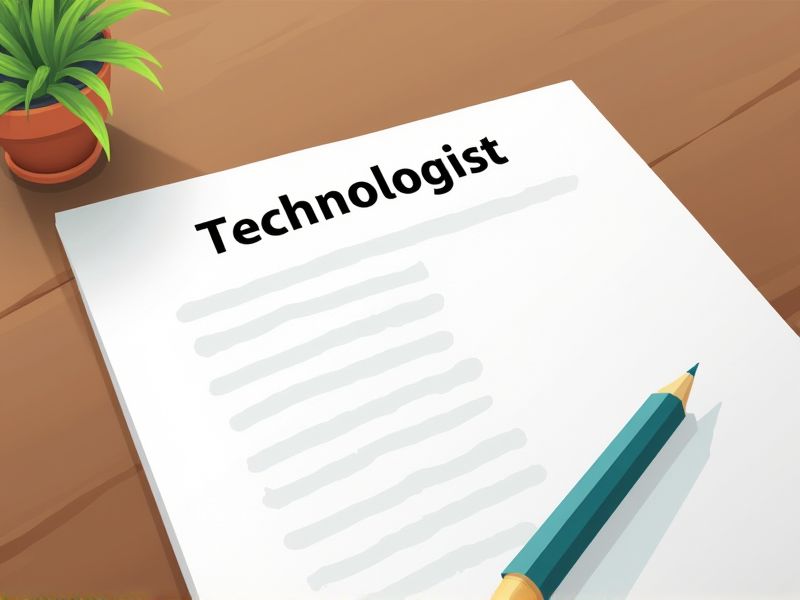
Educational technologists play a crucial role in integrating technology to optimize learning experiences, which requires a specialist skill set. Certifications provide structured learning and validation of expertise, ensuring competency in rapidly evolving technological environments. These credentials often reflect a thorough understanding of software tools, instructional design, and digital resource management. Below are pivotal certifications that could be required for an educational technologist.
Certified Educational Technology Leader (CETL)
The role of a Certified Educational Technology Leader (CETL) provides essential leadership skills to educational technologists, ensuring they can effectively integrate technology in learning environments. By having CETL certification, technologists can enhance their credibility and align with best practices recognized across educational sectors. The certified leader possesses the ability to manage and implement technology resources efficiently, which directly impacts students' learning experiences and outcomes. Possessing such certification signifies a commitment to continuous professional development, staying current with evolving educational technologies and standards.
Google for Education Certified Trainer
Educational technologists benefit from being Google for Education Certified Trainers as it enhances their ability to effectively integrate Google's suite of tools into teaching strategies. Certification equips technologists with advanced knowledge and support resources, improving their troubleshooting and training capabilities for educators. Educational institutions often prioritize collaboration with certified trainers due to their verified expertise, leading to more efficient implementation of technology-driven education solutions. Certified trainers can offer data-driven insights on the efficacy of educational technologies, facilitating informed decision-making.
Microsoft Certified Educator
An Educational Technologist with a Microsoft Certified Educator (MCE) credential demonstrates proficiency in integrating Microsoft tools into educational practices, enhancing digital learning environments. MCE certification equips educators with the skills to effectively utilize technology, aligning with global teaching standards and improving student engagement. Employers often seek professionals with MCE as it validates one's ability to leverage Microsoft solutions for educational efficiencies. The certification provides a competitive edge in educational technology roles, supporting career advancement.
Apple Teacher Certification
Apple Teacher Certification provides educators with essential skills to integrate Apple technology effectively into their teaching, enhancing learning experiences. It validates an educational technologist's proficiency with Apple's educational tools, increasing their credibility among peers and institutions. Certified educators can leverage Apple's resources to devise innovative teaching strategies, driving student engagement. With a focus on professional development, it ensures that educators remain current with evolving educational technology trends.
ISTE Certified Educator
ISTE Certified Educator demonstrates a commitment to integrating technology effectively in educational settings. This certification equips educational technologists with evidence-based strategies and tools to enhance learning outcomes. Schools and institutions often recognize the value of certified professionals, leading to greater trust and collaboration in tech integration projects. Certification also keeps educators informed about the latest digital learning trends and standards, ensuring relevance and effectiveness in their roles.
Adobe Certified Associate (ACA)
The ACA certification serves as a validation of an educational technologist's proficiency in Adobe's creative tools, which are vital for designing engaging and effective learning materials. Employers often seek certified professionals to ensure quality and credibility in educational resources, making ACA a competitive advantage. Holding an ACA demonstrates commitment to keeping pace with technological advancements in education. Educational technologists with this certification can better support faculty and students in integrating technology into curricula.
Certified Online Learning Facilitator (COLF)
The role of a Certified Online Learning Facilitator (COLF) complements the skill set of an Educational Technologist by ensuring the effective delivery of e-learning content. Educational Technologists who possess COLF certification can bridge the gap between technology implementation and pedagogical strategies, optimizing the learning experience. Facilitators with COLF training can offer insights on engaging learners, which directly impacts course completion rates positively. The combination of technological expertise and facilitation skills enhances the overall quality and accessibility of online education.
Certified Professional in Learning and Performance (CPLP)
Educational technologists with a Certified Professional in Learning and Performance (CPLP) credential demonstrate validated expertise in the design and implementation of effective learning solutions. Having the CPLP aids in staying current with industry trends, ensuring that technology integration in education aligns with best practices. This certification can lead to improved job prospects, as employers recognize the credential as a mark of proficiency and dedication to the field. CPLP holders are often better equipped to measure learning outcomes and enhance educational experiences effectively, thereby adding value to educational institutions.
Instructional Design Certificate (e.g., from ATD or similar organization)
Obtaining an Instructional Design Certificate equips an Educational Technologist with proven methodologies and tools essential for creating effective learning experiences. The certification from organizations like ATD validates expertise and enhances credibility, fostering trust among stakeholders. A structured program fills potential knowledge gaps and ensures alignment with the latest industry standards and technological advancements. Employers often prioritize candidates with such certifications, reflecting their commitment to continuous professional development.
Project Management Professional (PMP)
The Project Management Professional (PMP) certification equips educational technologists with structured methodologies to manage e-learning projects effectively. Proper project management skills ensure that instructional design and educational software development are completed on time and within budget. PMP-certified educational technologists can identify potential risks early in the process, reducing disruptions in learning environments. Enhanced leadership capabilities from PMP training facilitate better collaboration between technical teams and educational stakeholders.
Summary
By obtaining certifications, you can enhance your credibility and become more competitive in the job market. Certified Educational Technologists often experience increased job opportunities and may command higher salaries. Your expertise is validated, leading to greater trust from employers and peers. Employers tend to prioritize certified professionals, ensuring their teams are equipped with recognized skill sets.
